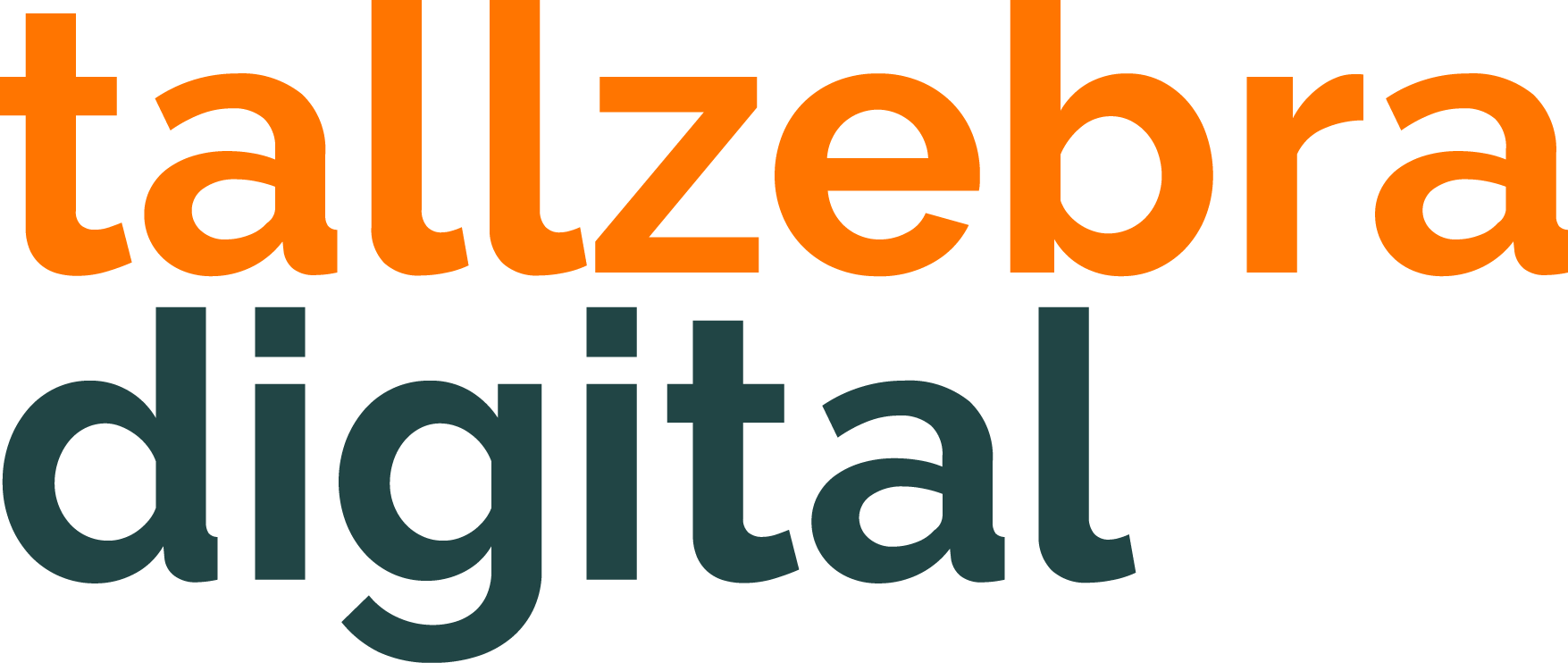
Search engine optimisation can be confusing and overwhelming. The rules and recommendations change so regularly that a lot of small business owners feel on top of it one month and then out of the loop the next. Without the right guidance and information, you could be investing time and money in the wrong strategy or channel.
Good business SEO will tick all the essential boxes and evolve as Google’s preferences do. If you’re a local business looking for advice from an SEO agency, this is the non-nonsense guide you and your small business have been waiting for.
Have a scroll and start learning the most important bits.
SEO in a nutshell
We’re a marketing agency and we’re pretty used to explaining SEO in a simple and accessible way.
Optimising your website is all about getting it higher up in Google search results. When someone searches for something really relevant to what you provide, sell, or do, your website will pop up on page 1 if your SEO is working well. Obviously, some search terms have stiffer competition than others, so the most sustainable and cost-effective strategy is to aim for high-volume, lower-competition keywords. In other words, keywords that you have a better chance of appearing on page 1 for. When you rank highly without pay-per-click ads this is called an organic ranking.
One thing people often forget is that Google will direct people to one specific page per search term. For example, if your business is a vegan bakery business and someone searches for vegan cakes, you want Google to show that person the page on your site it thinks is most relevant. It’s going to be one that mentions vegan cakes and is clear about that and very little else.
This is the basic and essential principle of SEO.
Your website content and functionality plays a big part
You’d be surprised what details matter when it comes to SEO. This is just a short list:
- Page titles
- Navigation menu
- URL structure
- Image tags
- WordPress plugins installed
- Length of blogs
- Videos
- Dead/broken links
- Duplicated content
- Page loading times
- How old your website is
All these things and more can have an impact on your SEO in various ways because Google scans and interprets sites really quickly, pulling all kinds of information to make its decision. It crawls (another word for reads) your site and takes all this information in before it decides how relevant your page is to a particular search term. It will consider all the good stuff and the not-so-good stuff, which can either bring your rankings up to the top of page 1 or drag them right down to a page no one bothers with.
Web design: It’s not all about the technical stuff
Keywords and technical SEO are really important but it’s only half as useful if your website isn’t designed for search. This includes content, imagery, and layout.
Smart navigation that makes sense to Google AND your customer
Website navigation mainly covers the top menu bar your site visitor will use to get around the site, as well as how site visitors navigate between pages. This is how they’ll find specific product categories, service pages, or essential info like contact details.
Google pays attention to the names of pages and how they’re structured in your navigation. Let’s go back to the online vegan bakery example. Smart navigation would read something like this:
– Home
– About our bakes
– Brownies
– Cakes
– Birthday cakes
– Full-size cakes
– Cupcakes
– Biscuits
– Contact
In Google’s opinion – and your site visitors – this is the most logical way to organise a navigation menu. The main pages are specific and they filter down into even more specific subcategories. Easy browsing improves the chances people will buy too.
Landing pages that actually convert
Let’s say your SEO strategy is pretty established and working well. What page are you sending all this new traffic to? Is it guiding them through a journey and making it really easy to buy, order, or show their interest, or is it leading them to a page that doesn’t answer any questions and leaves them a bit puzzled?
The page your site visitors are sent to when they click on your Google search result is called a landing page. Obviously, you want your landing page to be really engaging, using strategies that pull the visitor in, keep them there, and encourage them to make some kind of buying decision or commitment.
The conversion goal might be entering their card details and clicking buy or it could be signing up for a course or call-back. Whatever it is, a quality landing page is essential.
The importance of content
Potential customers and site visitors will come to your site for different reasons. A smart digital marketing and SEO strategy that works well will understand and accommodate those different reasons. It could be education – they want more information about a problem or issue. It could be a special offer or price they can’t get anywhere else. It could be that your products or services are niche or popular.
Google wants to know if people are drawn to your site and will consider the content on those particular pages before ranking it. This content should be relevant, and keyword-rich, make the most of headings and subheadings, imagery, and videos, use backlinks, and feature calls to action. A lot like this page!
What’s a backlink?
According to digital marketing agencies and experts online, backlinking is an essential part of your SEO strategy. If another website links out to yours a lot, it adds to your domain authority and Google gets pretty excited. It sees the particular website page as clearly important in some way when it comes to a specific keyword and will rank it appropriately.
Backlinks can be internal or external. Internal is within your own site, so you could choose to link to a specific service page from others to try and increase its authority. External are links from other sites to yours.
SEO: The online tools and resources you need
SEO has been around since search engines were established and there’s an entire community of people invested in it, monitoring it, and constantly trying to learn from it to boost their/their clients’ rankings.
Most of them use a few popular SEO tools and resources. Some cost a lot, some are much cheaper or even completely free. Here’s our pick of the best:
- SEMRush – Great for keyword audits and checking on backlinks, as well as 40+ other SEO tools. There’s a free trial and a few of the features are free all the time with limited access/results.
- Moz – This is similar to SEMRush and also has a handful of free tools to try. The blog’s a great read too.
- QuickSprout – One of the most straightforward and genuinely helpful SEO blogs out there.
- Neil Patel – The OG SEO guy. His site is a great place to go if you want to see how it should be done.
If you’re starting out with SEO it’s a good idea to read around and educate yourself before you pay for a tool with a big monthly subscription. There’s nothing wrong with finding your feet first.
Digital Agency: Choosing a digital marketing agency
Trusting an outside agency with your SEO is a hard choice and will initially bring quite a bit of digital admin. You’re handing over regular cash as well as a major part of your business, and many agencies have minimum terms in their contracts too, so whoever you choose you’ll probably have to stick with for at least 3 months. If you’re looking for a digital marketing agency or design agency, here’s how to make the right decision.
Step 1: Do your research
When digital and design agencies are pitching to and impressing prospective clients like you, they’re on their best behaviour and really selling themselves to you. If you go armed with SEO information – even pretty basic information – you’ll be in a really good position to spot the things you actually don’t need and ask informed questions to get to the bottom of what you really do need to know. Just like when you’re buying a car, knowing what you’re talking about makes for a much better sales experience for everyone involved. You’re more likely to spot a deal that isn’t worth it and grab the one that is.
Step 2: Compare everything, not just the price
It’s true that you get what you pay for. A bargain basement-priced service from an agency will not be all it seems. However, if you’re a relatively small/medium business you’re potentially not going to need the fanciest, all-singing-all-dancing package either.
Price is one essential thing to compare when you’re looking at a digital agency, but comparing what you get for it is even more important. If one agency is offering a cheap basic service but loads of costly add-ons, it might make more sense to go with an all-inclusive, pricier service where you know exactly what you’re going to get on the monthly invoice.
You should also choose based on how the meeting feels, what kind of information they provide, how communicative they are, and what kind of certifications and qualifications they have.
Step 3: Check their portfolio/previous work
Digital marketing agencies, like a lot of businesses, will bring their best results to the front and make a big fuss. This is obviously important to read but their portfolio of work and client history often speaks louder. If you’re paying purely for SEO, look at their full strategy and how it’s helped past clients. If you’re paying for web design too, look for examples of intelligent, optimised design.
You might have to ask for specifics if it isn’t already available on the agency’s website or in their pitch materials. It’s not cheeky! If they’re legit and confident in their service they’ll be happy to go through the specifics with you to secure you as a client.
Ready to get started? We’re a Digital Marketing Agency and Design Agency
Our SEO service makes it easier for your business to be found on top search engines such as Google, Bing and Yahoo.
- Keyword optimisation. We’ll help you create a focused keyword list, spending time on research and driving traffic with keywords that convert.
- Search listings. The next important stage – drive those clicks and get people to your site.
- Quality backlink creation. We’ll help you improve brand awareness and organic rankings with a long-term backlink strategy that sticks.
Tell us a bit about your business and what you want to get out of SEO, and we’ll get back to you with a quote.




